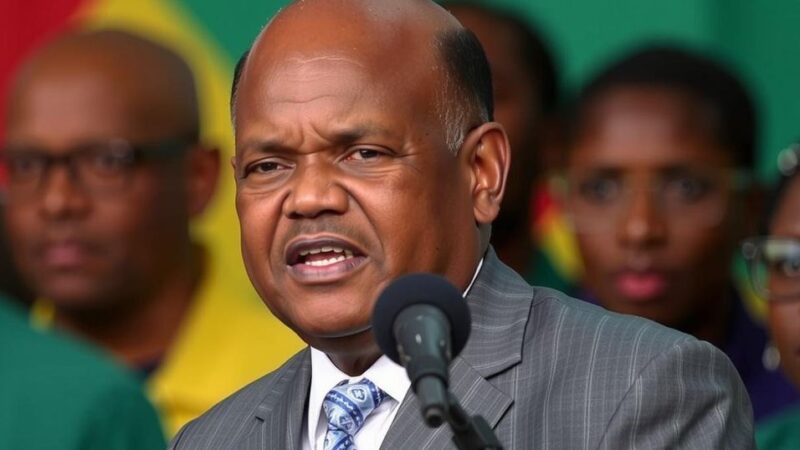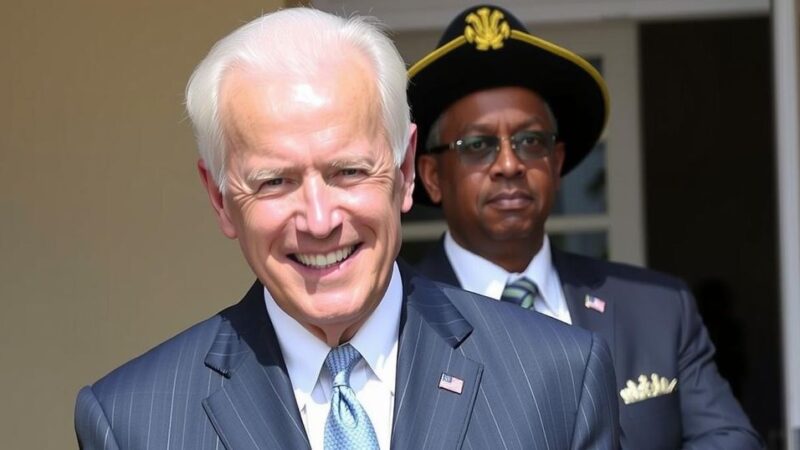Escalating violence in the Middle East, particularly the conflict in Gaza, has led to declining support for Vice President Harris among Arab American voters. Analysts warn that discontent with the Biden administration’s policies may suppress turnout in key swing states during the upcoming presidential election against Donald Trump. With foreign policy becoming an unexpected focal point, Harris must navigate tensions within the electorate to secure victory.
In light of recent escalations in violence across the Middle East, particularly regarding the ongoing conflict in Gaza, analysts have raised critical questions about the potential impact on the upcoming United States presidential elections. Vice President Kamala Harris, facing opposition in a tight race against former President Donald Trump, may find her support waning among Arab American voters due to her alignment with the Biden administration’s unwavering support for Israel amidst its military operations. Historically, foreign policy seldom ranks as a primary concern for American voters; however, the current situation has ignited significant scrutiny regarding the United States’ involvement. The toll of the conflict, which has resulted in over 42,000 casualties—including substantial civilian losses—coupled with the provision of approximately $20 billion in U.S. military assistance to Israel, has led to intensified dissatisfaction among Arab communities. Kamala Harris is currently polling evenly with Donald Trump among Arab voters, with recent surveys indicating a significant drop in support for the Democratic party within this demographic, from 59% in the 2020 election to just 17% for Biden. Analysts, including Jim Zogby of the Arab American Institute, assert that instead of the community shifting to conservatism, the source of discontent predominantly stems from a desire to hold the administration accountable for its foreign policy actions, underscoring a perception that the lives of Palestinian and Lebanese individuals are undervalued. Moreover, a September poll highlighted that 80% of Arab Americans consider U.S. foreign policy regarding Gaza a pivotal factor in their voting decisions. With a notable concentration of Arab Americans in swing states such as Michigan, where the community comprises around 392,733 individuals, the potential for diminished voter turnout could jeopardize Harris’s slim lead. Despite the administration’s position, there exists a faction of Arab Americans who feel that a Harris defeat would serve as a critical message to Democratic candidates about recognizing Arab voters’ influence. Others remain wary of endorsing Trump due to his hardline stance on Middle East affairs. As the election approaches amid fears of broader conflict extending to Iran, with rising hostilities following recent attacks, many voters express growing concern about the ramifications of U.S. military involvement. This sentiment is also reflected in recent polling, which reveals diverging interpretations of foreign policy perspectives between Democrats and Republicans, as well as distinct generational views on the ongoing violence in Gaza. In summary, the escalating violence in the Middle East poses a complex challenge to Vice President Kamala Harris’s electoral aspirations, particularly as Arab voters re-evaluate their allegiance amid the Democratic Party’s stance on the conflict in Gaza. The upcoming election will serve as a critical test of whether Harris can retain support from a historically significant demographic while navigating heightened political tensions.
The relationship between U.S. foreign policy and domestic electoral outcomes has historically been tenuous, with voters often prioritizing economic and social issues over international conflicts. However, the recent surge in violence and humanitarian crises in the Middle East, particularly in Gaza and Lebanon, has shifted the focus of certain voter groups, notably Arab Americans, towards foreign policy considerations. With the burgeoning frustration among these voters, especially towards the Democratic party’s unwavering support for Israel under the Biden administration, there remains a substantial possibility that their turnout could significantly influence the upcoming presidential election.
In conclusion, the escalating violence in the Middle East is poised to have a profound effect on the United States electoral landscape, particularly for Vice President Kamala Harris as she attempts to rally support from Arab American voters. The administration’s steadfast backing of Israeli military actions has led to disillusionment within a demographic that once heavily favored the Democratic party. As election day approaches, the extent of this discontent, coupled with regional geopolitical tensions, will play a pivotal role in determining the electoral outcomes in key swing states.
Original Source: www.aljazeera.com







